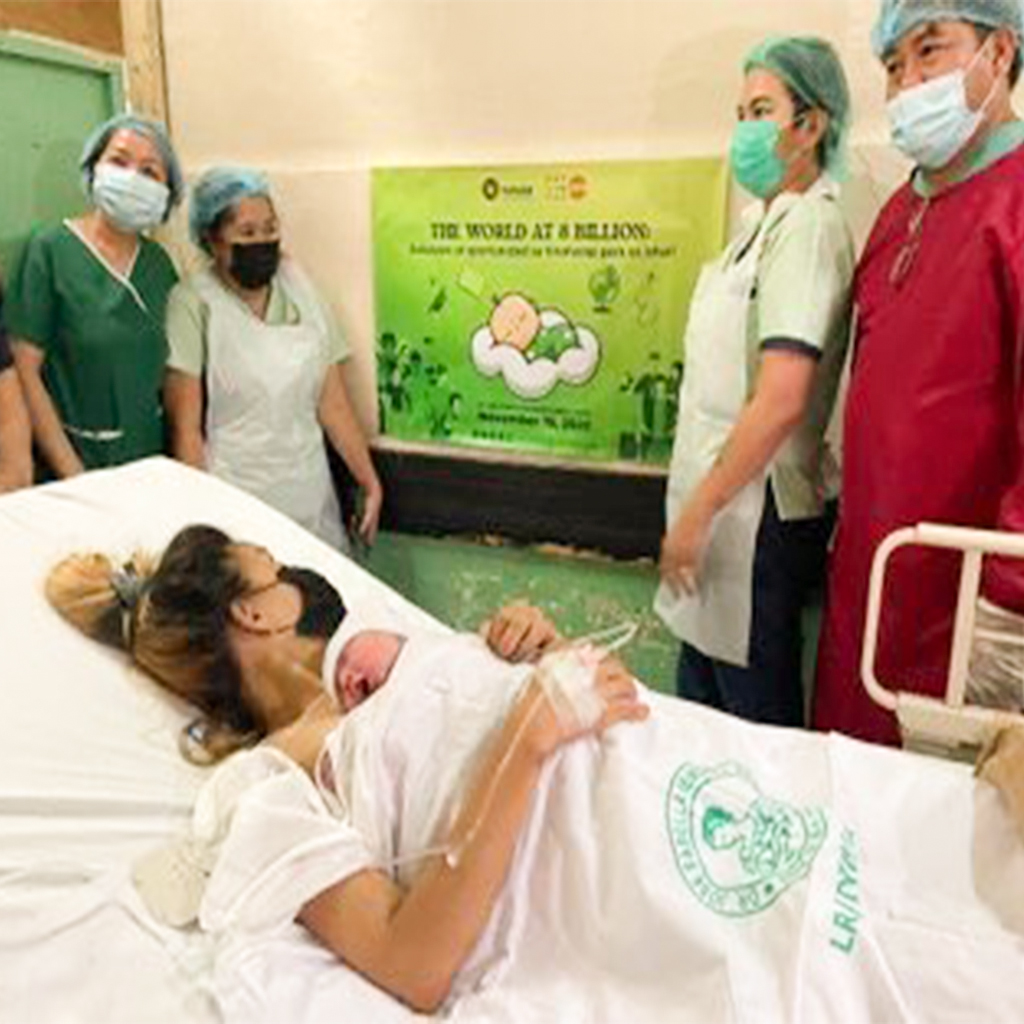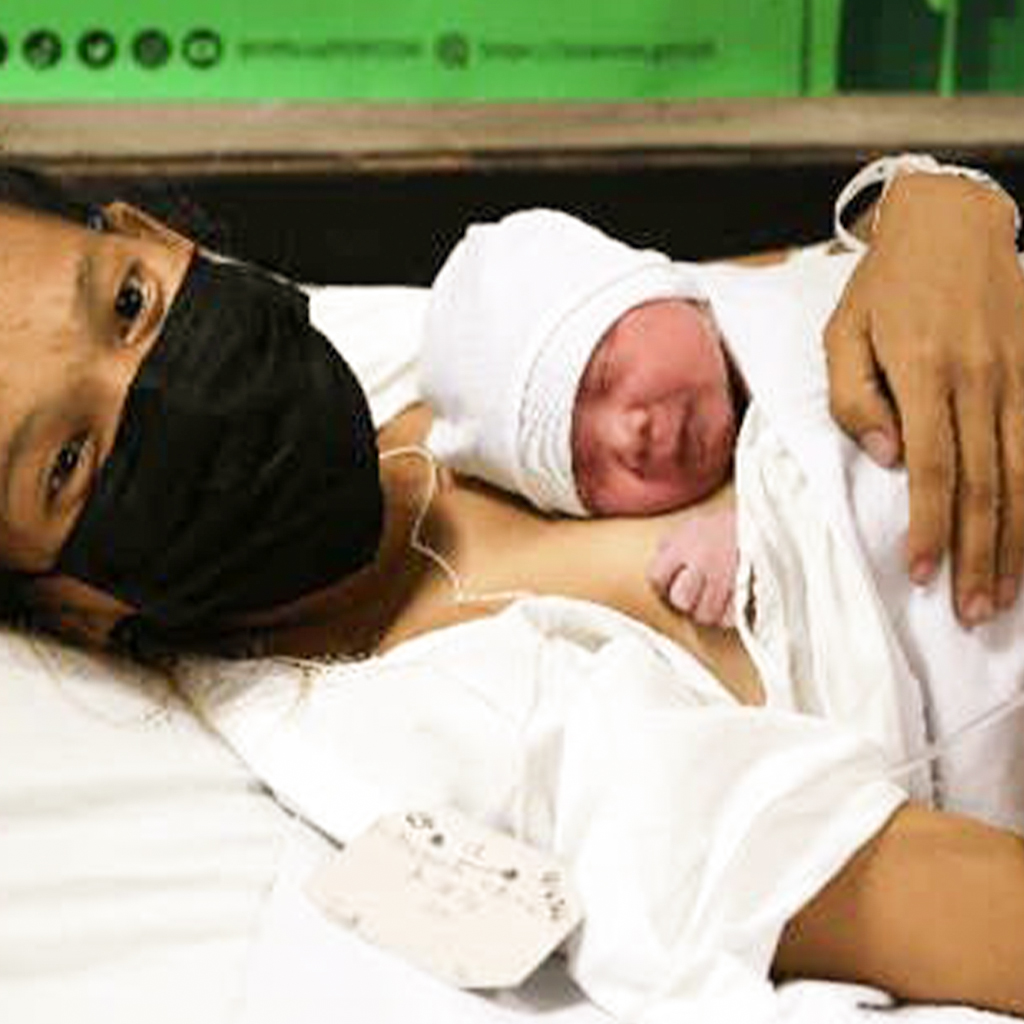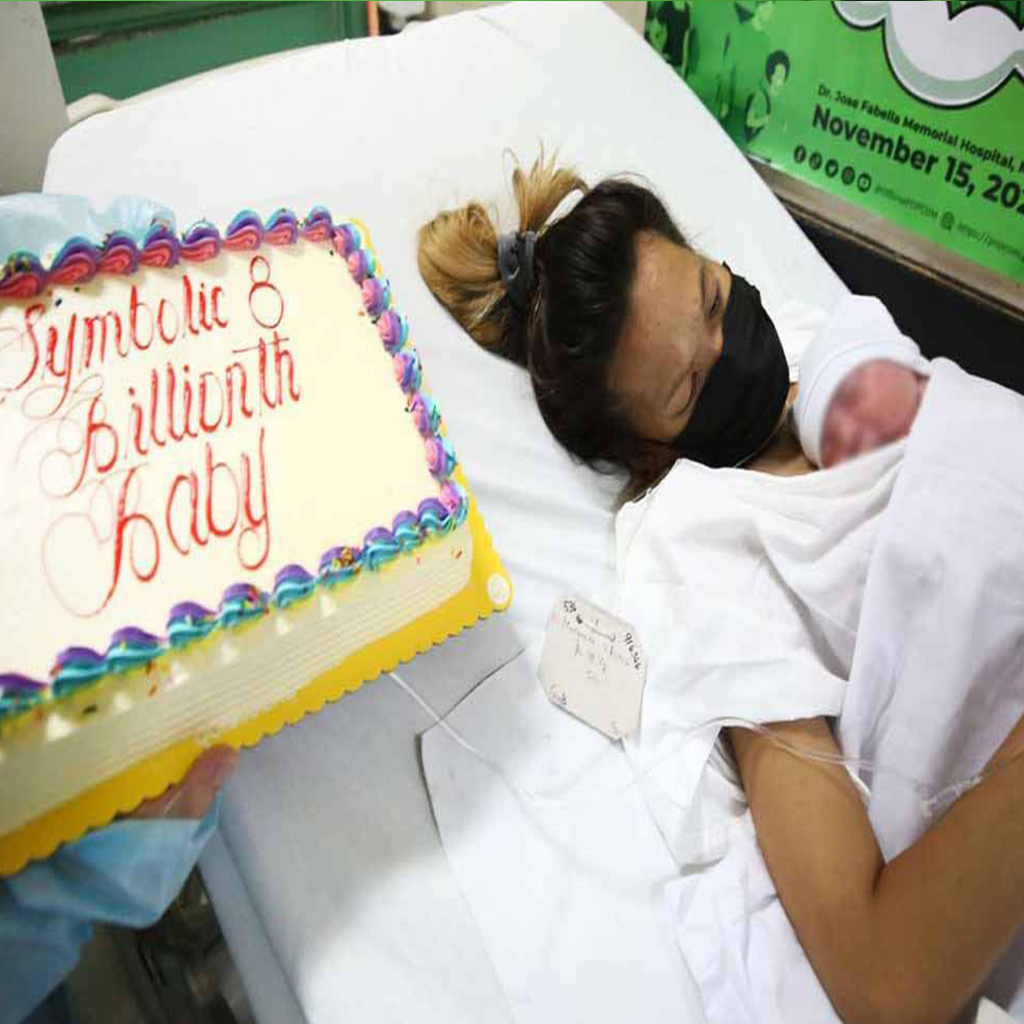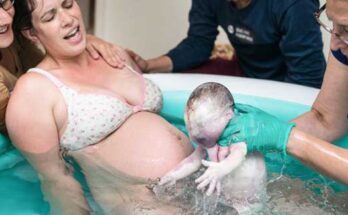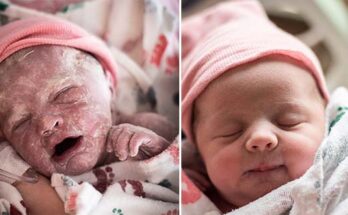Baby Vinice Mabansag was born at Dr. Jose Fabella Memorial Hospital in Tondo, Manila on November 15 and was chosen to mark this important milestone. Was declared the eight billionth person in the world when the United Nations confirmed that the population passed the landmark number yesterday. The Philippine Commission on Population and Development awarded Vinice – who was welcomed into the world at 1:29 a.m. with officials standing by – with the symbolic title.
Venice’s mother, Maria Margarette Villorente, said she was delighted that her daughter was considered the “8 billionth baby” in the world, adding that it was a blessing for her. The Population and Development Commission (POPCOM) Executive Director Lyneth Therese Monsalve said they are hoping that Venice will be a symbol of future growth.
The newborn infants representing 5, 6, and 7 billion people are named in accordance, showing how quickly the world’s population has increased since 1950, when there were 2.5 billion people on the planet. in 1987, 1999 and 2011. Officials from the United Nations predicted that 5 billion people will be surpassed by July 11th, 1987, which led to the historic baby naming concept.
The five billionth baby’ has been ‘christened’ at a hospital in Zagreb, Croatia on the scheduled date.
Adnan Mevic, born in Bosnia-Herzegovina, was declared the world’s sixth billion baby by none other than United Nations Secretary-General Kofi Annan. Speaking to commemorate yesterday’s milestone, he expressed his shock at the dramatic rise in birth rates since his era. However, he continued, as young people leave and the birth rate declines, the population of his hometown is getting smaller.
Born in 2011 in Dhaka, Bangladesh, Sadia Sultana Oishee is one of the “seventh billion babies.” She arrived at midnight and was welcomed by the film crew and local authorities. Now, her family told the BBC, she wants to be a doctor.
According to Rachel Snow of the United Nations Population Fund, the rate has dramatically decreased to less than 1% by 2020 after peaking in the early 1960. The majority of people on Earth and the majority of countries have reached a point where the fertility rate is below replacement level, or roughly 2.1 children born to a woman annually.
The real growth rate is at its lowest level since 1950 and will fall below 1% for the first time in 2020, despite the fact that 8 billion sounds like a significant milestone.

